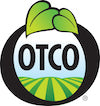7 Tips to Choosing the Right Organic Protein Powder
In today’s market there’s a never-ending sea of brightly colored protein powder choices that make numerous health claims, but how do you know which one is the best? It can be a daunting experience trying to vet the healthiest option, so here are seven tips that will help you discover which protein powder is right for you!
1. Choose certified organic and grass-fed: Choosing an organic protein powder is an especially important consideration if the protein comes from animals (whey, for example). Animals that are pastured and raised on a natural diet of pesticide-free grass, and are not fed hormones or antibiotics, produce a healthier, higher quality product.
2. Know your source: When it comes to purchasing protein powders, it is critical to get to know the source or the manufacturer of the product. Ask questions like, where is your protein powder sourced? Is it USDA certified organic? How is it processed? Is it blended from multiple sources? Is there any third party testing for heavy metals? What additional ingredients are in the protein? All of these questions make you an empowered consumer, and allow you to make the best decision for your health.
3. Is it sustainable?: Another consideration is the product’s carbon footprint which is “the amount of greenhouse gases and specifically carbon dioxide emitted by something (as a person's activities or a product's manufacture and transport) during a given period.”
Did you know that most conventional whey products come from places like China that simply blend multiple sources of protein into one product? The traceability on these types of products is nearly impossible, so for the most sustainable option, look for U.S. or locally grown and manufactured products.
4. Look for cold processing: All protein powders undergo some processing to cull the plant or dairy's source of protein. This can be done naturally like milling flour, or it may use a high heat acid process that can erode the protein's nutritional benefits. Some manufacturers even process the powder with toxic solvents like hexane, which is common among soy protein isolate. It’s best to choose a protein powder that is minimally processed at low temperatures, or is cold processed to preserve the delicate nutrients of the protein powder.
5. Read the ingredient list: While some protein powders are just that—pure powdered protein—many contain ingredients including sugar, fillers, artificial colors, sweeteners and flavors. Even those labeled organic can include ingredients you may not necessarily want in your protein powder. In fact, some of those extra ingredients may cause you to gain weight, or experience a crash during or after a workout (like added artificial sweeteners, flavorings and preservatives). Look for protein powders that are simple and have a minimum number of ingredients. After all, if you're putting your protein powder in a smoothie, you'll be adding delicious natural flavors such as fruit, spices and even pure chocolate (pure unadulterated chocolate or cocoa is healthy!).
6. Quality Assurance: As mentioned already, processed proteins may contain traces of chemicals and heavy metals that are extremely bad for your health. Check out the brands' label or website to see if any third party testing has been done on their product to ensure quality and safety.
7. Allergens: The most common food allergens include soy, rice, eggs and dairy—all of which are also common in protein powders. If you're adding protein powders into your diet for a cleanse or other detox purposes, you may want to check to see if your primary care physician or naturopath recommends steering clear of products containing any of the common allergens.
image: Opheliac
Leave a comment
Comments will be approved before showing up.



